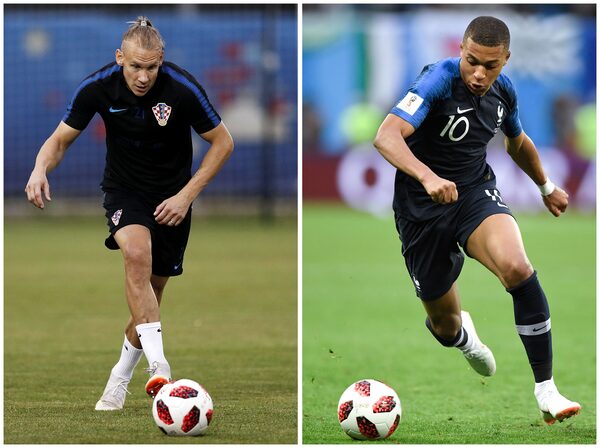Kylian Mbappé has electrified the World Cup with his speed and youthful exuberance. Luka Modric has coolly controlled matches in Russia with his graceful play in the middle.
Whether France wins its second title in 20 years or Croatia raises the trophy for the first time on Sunday at the Luzhniki Stadium in front of Russian President Vladimir Putin and nearly a billion television viewers could turn on the play of the two stars.

Nearly a billion television viewers around the world could see the ultimate victor depend on the play of the two stars -- Luka Modric, left, of Croatia and Kylian Mbappé of France.GABRIEL BOUYS/Getty Images
The 19-year-old Mbappé has been the biggest sensation at the tournament in Russia, scoring three goals – including two against Argentina in the round of 16 — and creating havoc for opposing defences with his pace and his agility.
“It’s going to be the biggest match of my life, for sure,” the Paris Saint-Germain forward said on Friday.
Although Mbappé has impressed for France at the month-long tournament, Modric has been the rock and the spark for Croatia. When the Real Madrid midfielder has the ball at feet, good things seem to happen for Croatia.
“Even when you think they’re going to lose, or going to crack, they always have the mentality to come back,” Mbappé said of the Croatian team. “It’s a team that plays with a lot of intensity.”
France last won the World Cup title in 1998, at home. The French defeated Croatia in the semi-final that year, which until now had been the country’s best showing at the tournament.
The heads of state from both countries are expected to sit with Putin. Will Smith is set to headline the closing ceremony.
Croatia, a country of 4.5 million people which gained independence from the former Yugoslavia only 27 years ago, enters the final after playing three straight extra-time matches, including two nerve-racking penalty shootouts.
In all three of those matches, Croatia has had to recover from being a goal down. The players never gave up.
“When you put the sacred Croatia shirt on, you become a different person,” Croatia midfielder Ivan Rakitic said through a translator. “I’m not trying to say it’s a superior feeling that the French have for France, or Russians for Russia.
“The best feeling is to be Croat these days and this is the source of all our strength.”
While Croatia had to rally to keep advancing, France won all three of its knockout games in the regulation 90 minutes and trailed for only nine of the 540-plus minutes it has been on the field.
EUROPE WINS
France or Croatia will become the fourth different European country to become world champion in a streak started when Italy beat the French in the 2006 final.
Spain won the 2010 title in another Europe-only final against the Netherlands and Germany defeated Argentina in 2014 to become the first European team to win the World Cup in South America.
PRIZE MONEY
There is US$10-million in extra prize money on the line at the Luzhniki Stadium.
FIFA will give US$38-million to the winning team’s national soccer federation. The runner-up gets US$28-million.
The total prize fund for the 32 competing teams is US$400-million. FIFA gives each team at least US$8-million.
FINALS CLASH
Both the World Cup final and men’s final at Wimbledon are on Sunday and could overlap.
The tennis final starts in London two hours before the soccer kicks off in Moscow.
MIDFIELD ARCHITECT
If Rakitic’s soccer career had not led him to the World Cup final, he might have helped design the Luzhniki Stadium’s recent reconstruction.
Rakitic studied architecture while growing up in Switzerland, and trained at the Basel offices of Herzog & de Meuron.
He said he “worked in an office that made blueprints” for the Bird’s Nest, the main stadium for the 2008 Beijing Olympics. The firm also designed the stadium for Bayern Munich that opened ahead of the 2006 World Cup.